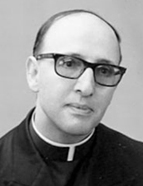

In 'genetic structuralism', the single author or collective consciousness are surpassed by ‘the highest level of consciousness possible’, the moment when, through conceptual reflection or artistic creation, the individual - who belongs to and moves between different social groups - expresses himself from a univocal point of view; in literary works, an empirically sound expression of a cohesive social group may thus be found. This method was mainly geared towards the analysis of great literary works and Antunes used it explicitly in the analysis of important classical culture works.
Finally, and more in line with historiography strictu sensu, he may be considered a historian without works since his thinking was developed in actu at the Faculdade de Letras da Universidade de Lisboa. Although his idea of history may be recovered through dispersed texts, only one major work can be identified in this context: his subject coursebook for the História da Cultura Clássica [History of Classical Culture] where, in addition to a reflection on the theory and philosophy of history, he discusses the origin, development and decadence of Greek and Roman civilisations and culture. This coursebook was constructed from notes taken in class and circulated among the students, which were then corrected and further developed by the professor and finally published in the printing services of the Faculdade.
This document left its print on around fifteen thousand students who, at some point between 1958 to the early 1980s, had taken his classes. The crucial publication, which circulates under the seal of the Fundação Calouste Gulbenkian, is based on the last version of 1970 and takes into consideration the various versions since the 1961/62 academic year. This means that Father Manuel Antunes' level of historical reflection increased during this decade between his forties and fifties. His idea of history was woven at the crossroads of the great issues of the time and is symptomatic of the debates that took place on the unitary character of academic knowledge, the nature of the sciences, and the epistemology of history.
As regards the first factor, the defence of indivisible knowledge points to a continuity of the Central European philosophy of the 19th century, adopted fundamentally by the progressionist Catholic university sectors. Manuel Antunes' eminently Thomistic discourse was often expressed in a binary and dialectic manner in order to achieve synthesis. In historiography, this principle had a singular application: to avoid the depletion of knowledge, themes from the past were addressed by problematising the present (Idem, pp. 41, 205, 246).
